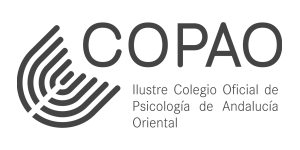Speaker

FRANCISCO J. NIETO
UNIVERSITY OF SEVILLE. SPAIN
Francisco Javier Nieto-Casado holds a PhD in Psychology from the University of Seville. During his doctoral studies, his research centered on mental health in vulnerable populations, with particular attention to the transition to parenthood during adolescence in families a5ected by youth mental health problems, as well as the prevention of suicidal ideation in adolescents. Currently, his work focuses on the prevention of mental disorders in mothers and fathers during the perinatal period. He is a member of the PAIDI research group
“Developmental and Educational Processes in Family and School Contexts” (SEJ- 547), and of the Perinatal-IBiS Lab (IBiS-B-17), a5iliated with the Institute of Biomedicine of Seville (IBiS). He collaborates in national and European research projects, including a national R&D project promoting well-being and positive parenting in families of adolescents with mental health problems, and an ERC Starting Grant project focused on developing a mobile health (mHealth) intervention for the universal prevention of perinatal mental disorders.
Dr. Nieto-Casado has co-authored several scientific publications in peer-reviewed journals and over 30 contributions to national and international conferences. He has been recognized with awards for academic excellence and for outstanding scientific contributions by early-career researchers. His international research experience includes three stays at Ghent University (Belgium), where he collaborated on studies of adolescent development and well-being.
His main research interests include mental health, positive development, parenting, psychometric validation, and the design of evidence-based preventive interventions for diverse and at-risk populations.
Assessing Perinatal Mental Health in Spanish-speaking Women: Psychometric Advances in Key Measures

The perinatal period represents a critical window for women’s psychological well- being and, consequently, for infant development and family health. Adequate identification of mental health conditions and psychosocial vulnerabilities during this time depends on the availability of valid and reliable assessment tools. While some instruments have been validated in Spanish-speaking perinatal populations, the number of measures specifically adapted to this context remains limited, and there is a need to further strengthen and update the psychometric evidence
supporting their use.
This monographic table brings together four complementary studies that contribute to the advancement of perinatal mental health assessment through the validation and adaptation of key instruments for Spanish-speaking pregnant and postpartum women. The first communication presents the preliminary psychometric evaluation of the ANRQ-R, a tool designed to identify psychosocial vulnerabilities during the perinatal period. The second and third communications focus on the updated validation of three widely used screening scales: the PHQ-9, the EPDS, and the GAD-7. These instruments are essential for the detection of perinatal depression and anxiety, two of the most prevalent and impairing conditions aPecting maternal mental health. The final communication explores the Spanish validation of the BPNSFS, shedding light on how the satisfaction and frustration of basic psychological needs during this period relate to depressive and anxious symptomatology.
By addressing clinically relevant symptoms and broader psychosocial dimensions, this monographic table oPers an integrated perspective on perinatal mental health assessment. It underscores the importance of culturally adapted instruments for early detection, risk stratification, and the development of targeted interventions in Spanish-speaking populations. The findings have direct implications for clinical practice and future research in maternal and child health.












